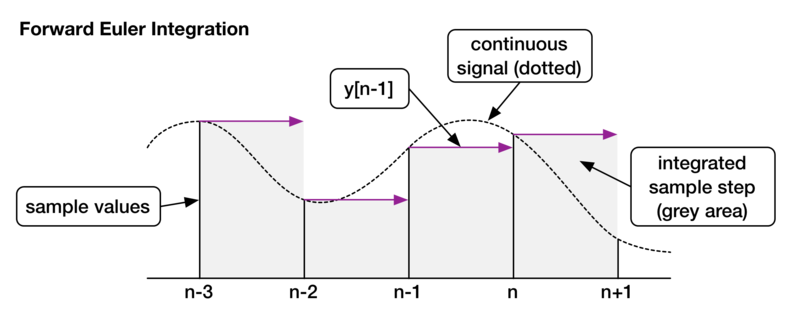CLAP
and why it's a great name for an audio plug-in ABI
Let's start with a little essay:
“Since ancient times, clapping has always been deeply associated with music: From the rhythmic clapping at tribal gatherings or concerts, to the iconic clap sound in drum machines. But the ‘high five’ clap signifying shared achievement, closely related to the handshake signifying agreement or . . .
Specimen
or why does my synth sound so different?
So I'm sitting here, tuning my algorithms and parameters to do just what the circuits do in that little black box next to me. I'd match some parameter ranges and curves, such as mapping cutoff frequency to its control voltage down to a few cents and then I'd try some oscillator and envelope on that control voltage. Quite often . . .
One Pole Monster
going hands on with source code
That filter problem I've laid out in my previous blog entry... let's solve it. Unfortunately that code section has become much larger than I expected, so I've concentrated on the various methods to resolve that implicit non-linear equation with the tanh() term. As a drawback I've thrown the highpass input and the inverting . . .
One Pole Unlimited
that tanh() feedback thing
Here's some more in depth analysis of one pole filters which we need later on to create more complex models. I'm dividing this article into several sections. First we'll present a "workable" schematic that lets us handle single pole lowpass filters with a lot of flexibility. Then we'll introduce the concept of . . .
Analogue Modeling
or how we get to these equations
When dealing with music DSP stuff there's a great chance that one day you'll ponder about a mysterious issue: Do audio samples represent the voltages in electronic circuits or do they represent the currents? And somehow the most fundamental difference between sample based signals in DSP and that of analogue stuff seems to be just . . .
Numerical Integration
What's up with that trapezoidal business?
So I finally fired up OmniGraffle to sketch some examples for Forward Euler vs. Trapezoidal Integration. Let's dive right in:

The idea is, to integrate a known function y = f(x) we simply sample that function and build square blocks between the sample intervals. Those blocks are supposed to approximate the integral of . . .
Posted in: filter design
Zero Delay Feedback
or how we predict the future... not!
There's always a bit of a misconception as to what people mean when they talk about eliminating the unit delay in feedback loops, such as those found in analogue filter models. Here's a more or less comprehensive run down on what is actually meant by that.
Often enough I see people state that, in order to predict the output . . .
